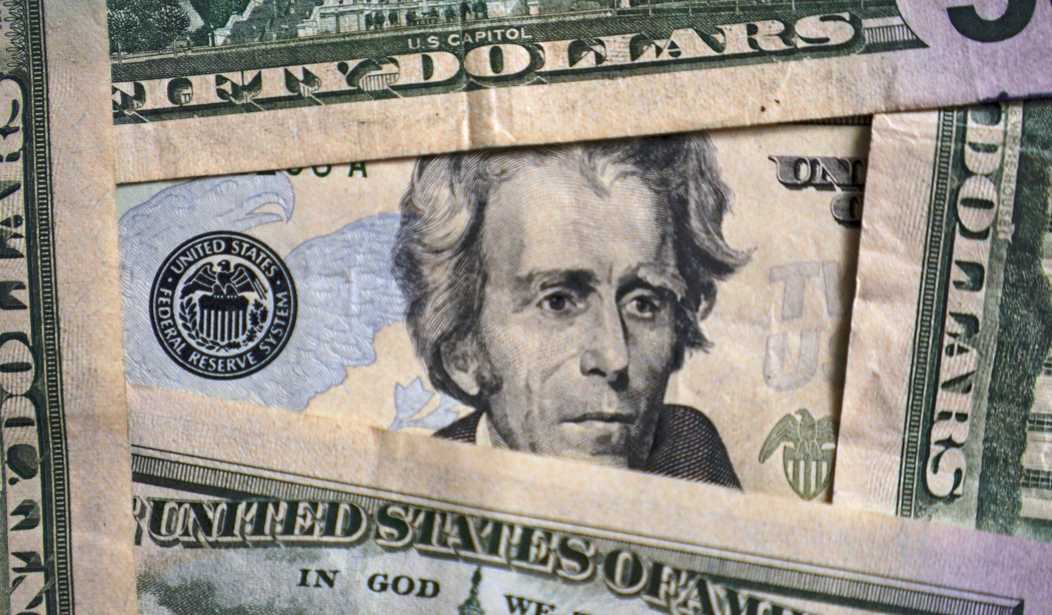Have you heard? You're an ignorant, low-information voter because you don't think that the economy is "roaring."
And it's a damn disgrace that you're not on your knees every night thanking Joe Biden for his beneficent leadership in bringing this "historically good" economy.
Shame on you.
Economists, who are perplexed as a state of being, are at a loss to explain why the serfs can't get it through their thick skulls that they never had it so good.
"Unemployment is low and inflation is falling, but consumer sentiment remains depressed," three economists at Harvard and one based at the International Monetary Fund write in a new paper. These events "have confounded economists, who historically rely on these two variables to gauge how consumers feel about the economy."
As Eric Boem writes at Reason.com, "According to a Gallup poll from last month, 45 percent of Americans rate the country's economic conditions as 'poor' — a far larger share than those who rate it as 'excellent' (5 percent) or 'good' (22 percent)."
"It's the economy, stupid," exclaimed James Carville in 1992 when running Bill Clinton's campaign. Carville's job was to turn a so-so economy into a depression, thereby turning a popular president, George H.W. Bush, into a pariah. Needless to say, it worked.
Related: No, Really — WaPo Says Biden's Border Invasion Has the Economy 'Roaring'
But no matter the unemployment rate, it's inflation that bedevils the American consumer. The rate of inflation may be coming down, but the 9% inflation in the summer of 2022 is baked into the system. Nobody cares if prices are rising more slowly. It's where prices are now compared to where they were in 2020 that has people angry.
The cost of borrowing money, they explain, "is not currently included in traditional price indexes, indicating a disconnect between the measures favored by economists and the effective costs borne by consumers." With inflation rates hitting 20-year highs in the wake of the pandemic, everything from mortgage payments and car payments to the interest costs charged by credit cards have shot upward, and that is undeniably putting a drain on Americans' wallets.
For Summers and the rest, this explains a significant portion of what some analysts have referred to as a "vibescession"—the vague but persistent sense that things aren't going as well as prominent economic indicators suggest.
"The inclusion of borrowing costs into an alternative measure of CPI inflation significantly narrows the gap between predicted and actual consumer sentiment," the economists conclude.
Borrowing costs are high because the Federal Reserve can't lower interest rates until inflation is below their 2% a year target.
More generally, this theory might explain a lot. The sticker shock of higher prices at the grocery store might have waned, but higher interest rates impact Americans in a lot of ways that aren't quite as obvious. In 2018, the average monthly payment on a new car was about $530. Last year, it was over $720. Some of that increase is due to inflation in the price of vehicles, but a sizable chunk is due to interest rates being significantly higher. An extra $190 a month is a lot. It might cause some Americans to put off a planned purchase of a new car in the hopes that rates will fall—I've done that—or feel like such a purchase is unaffordable.
There's another factor at work too. Interest rates had been remarkably low for a long time until recently. Anyone younger than Gen X has never dealt with mortgage rates or loan rates approaching their current levels. Mortgage rates remain well below where they were when my parents were buying their first home in the early 1980s—rates peaked around 18 percent back then—but that is utterly meaningless to people who have seen mortgage rates nearly triple since 2020.
No one thinks of interest rates when contemplating one's vote. But as the economists point out, those interest rates affect so much of our economic life, including costs we rarely give much thought to.
At the bottom, it's not so much the interest rates that matter but rather inflation that hasn't been wrung out of the system that makes Americans uncomfortable and worse, insecure.










